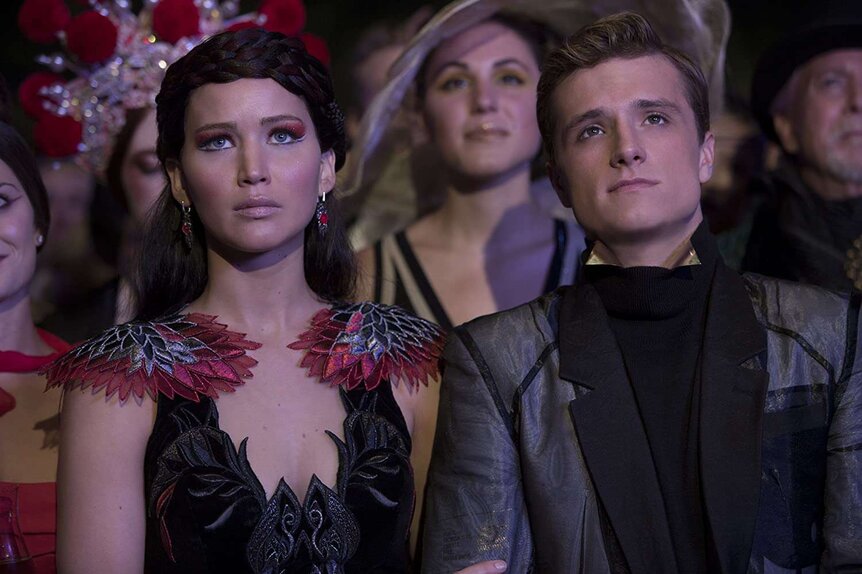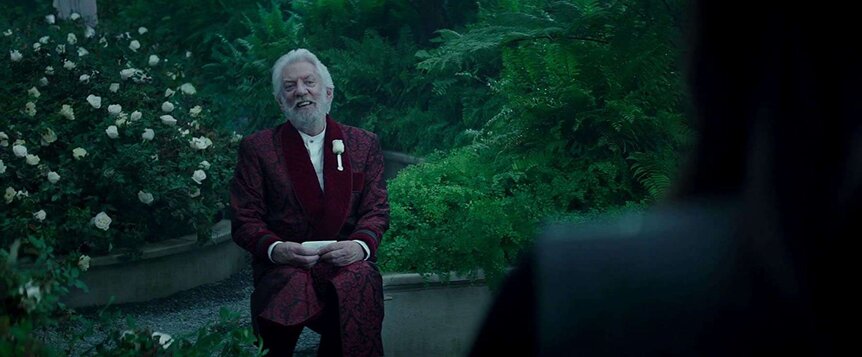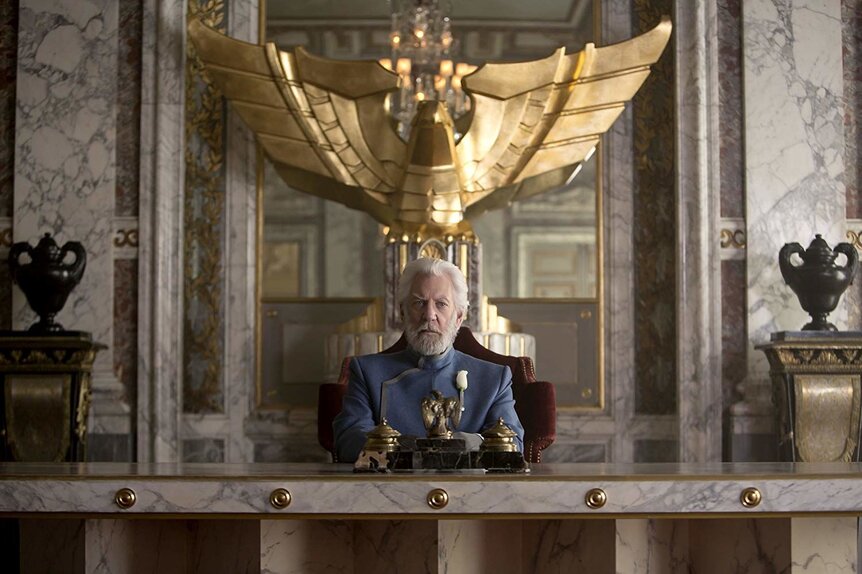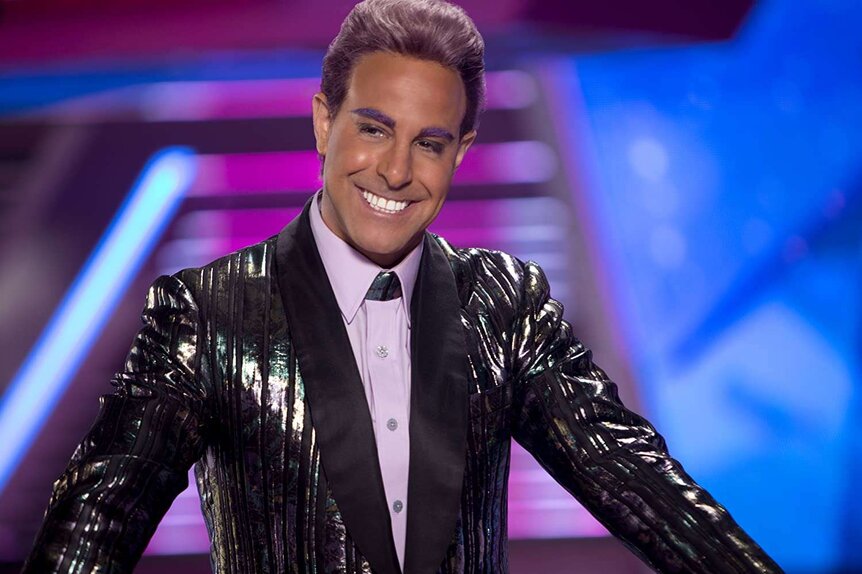Create a free profile to get unlimited access to exclusive videos, sweepstakes, and more!
The Ballad of Songbirds and Snakes: 5 Panem facts we learned from the Hunger Games prequel
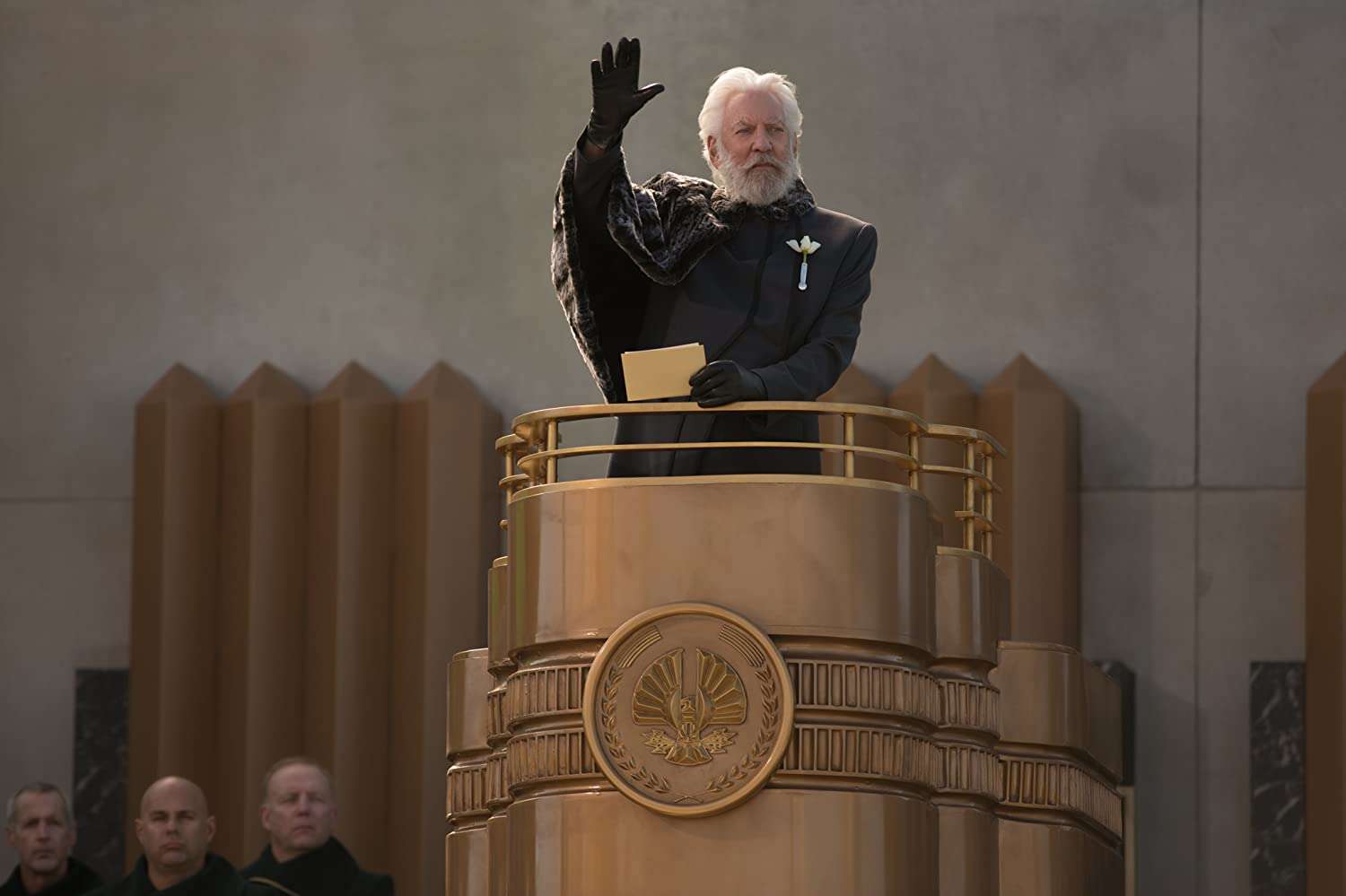
64 years before Katniss Everdeen led the 12 districts of Panem to revolt against the Capitol, an 18-year-old Coriolanus Snow was helping re-shape the Hunger Games into a new dystopian creature. The ferociously ambitious and blond-haired boy who would one day assume the presidency of a segmented country that was once North America takes center stage in Suzanne Collins' new prequel novel, The Ballad of Songbirds and Snakes.
Set against the backdrop of the 10th Annual Hunger Games, the book (out now from Scholastic Press) finds young Snow partaking in a newfangled academic program, where the Capitol's brightest — and richest — Academy students are tasked with mentoring the 24 Tributes who will battle to the death as punishment for the district rebellion that ended a decade prior. The goal is to forge a personal connection between the audience and the fighters, thus driving up viewership numbers. Coriolanus is paired up with Lucy Gray Baird, a singer from District 12 (eventual birth place of Katniss) who turns his entire world upside down.
At just over 500 pages long, The Ballad of Songbirds and Snakes is many things at once: a love story, a tale of fomenting political dissent, an Orwellian satire, an analysis of the unsustainable nature of fascism, an examination of family legacy, and, of course, a villain's backstory. With so much content between the two covers, Collins works overtime to fill in a bunch of Hunger Games lore that she established in her first three books.
For example, did you know that Coriolanus' evolution into a murderous, remorseless, and power-hungry tyrant is inextricably linked with the evolution of the Games themselves? That's just one of five big things we learned from reading the prequel. Wait for the gong to sound before heading to the rich cornucopia of information below.
** Please be warned that the following list contains major plot spoilers for the book! **
The Hunger Games weren't always a massive spectacle
Most of The Ballad of Songbirds and Snakes revolves around the Capitol's efforts to make the annual event more exciting for the citizens of Panem, who have become turned off by the yearly bloodbath. That's because the first nine Hunger Games were super simple and unfiltered; the Tributes would arrive in the Capitol and immediately be dumped into a former sports area littered with weapons.
The interviews, parades, stylists, betting, sponsors, mandatory viewing, and ever-changing sci-fi battlefield did not exist when Snow was a young man.
Snow and his classmates came up with a few major additions to the Games
Grooming the Tributes for the cameras isn't enough for sadistic Head Gamemaker Dr. Volumnia Gaul. Speaking with the mentors, Gaul asks them to come up with "a way to let people personally affect the outcome of the Games."
Coriolanus' colleagues, Sejanus Plinth (who is highly disillusioned with Capitol policy) and Festus Creed, inspire the concepts of sending gifts to and betting on the Tributes, but it's Snow who ultimately writes up the proposal.
Even then, gift packages from sponsors only include food and water, whereas Katniss could receive other items like medicine during her time in the 74th Games.
Roses were always a part of President Snow's life
In the original Hunger Games trilogy, President Snow was characterized by the cloying scent of genetically altered roses that hid the constant scent of blood on his lips. It's said that he purposefully drank poison in order to deflect suspicion off of himself after poisoning his own political enemies. Despite taking antidotes right away, his mouth developed bleeding sores that never healed.
Coriolanus' choice of flower was dictated from a young age by his senile and feverishly patriotic grandmother (or "Grandm'am") who grew the Capitol's most prized roses on the rooftop garden of the Snows' penthouse apartment. Her love for them is so intense that she has to be persuaded to let her grandson use them to spruce up his outfits, which, due to the family's depleted financial resources, are often shabby and secondhand.
As Collins writes in Ballad, "She parceled out her flowers like diamonds."
Coriolanus also uses one of her roses to make a positive first impression on Lucy Gray — a nice, if tragic, juxtaposition to how the flower becomes a symbol of unwelcome death and misery in his future.
Snow's tyrannical policies resulted from school and young love
While always ambitious and privately scheming to come out on top, Snow doesn't really go through his metamorphosis into full-blown dictator material until the events of the prequel.
A lot of it has to do with Dr. Gaul's constant lessons about control, chaos, and a never-ending war against the upstart districts. Having grown up in the "Dark Days" when the rebels besieged the Capitol and drove some of its residents to cannibalism, Snow becomes wholly convinced that the Hunger Games are the only thing keeping another conflict at bay.
But that's only one part of the reasoning for his vice-like grip on Panem when he becomes president in the years that follow. Falling in love with Lucy Gray (we won't go into specific details here) during the 10th Annual Games ends up warping his views on human emotion. He comes out the other side believing that feelings for another person are a weakness that must be concealed or stamped out altogether.
The Games' first-ever host was (probably) a relative of Caesar Flickerman
To add a little more levity to the Games, the Capitol taps meteorologist Lucky Flickerman to serve as full-time host for the 10th anniversary, something that's never been done before. Bumbling, unaware of social cues, and gifted with a small talent for magic tricks, Flickerman "struggled to create the role," trying out bizarre strategies to keep people tuned in, like bringing his pet parrot, Jubilee, onto the live broadcast.
Strangeness aside, Lucky helped blaze the trail for Caesar Flickerman, the Games' host in Katniss' time. Almost certainly a relative of Lucky's, the flamboyant and bombastic Caesar enjoyed playing MC for over four decades.
Maybe the role of Hunger Games host became a kind of legacy title that Flickerman Sr. was able to pass it on to young Caesar. It would be really funny if a slightly altered Stanley Tucci gets cast as Lucky in the upcoming Ballad film adaptation to underscore the connection between the two characters.
